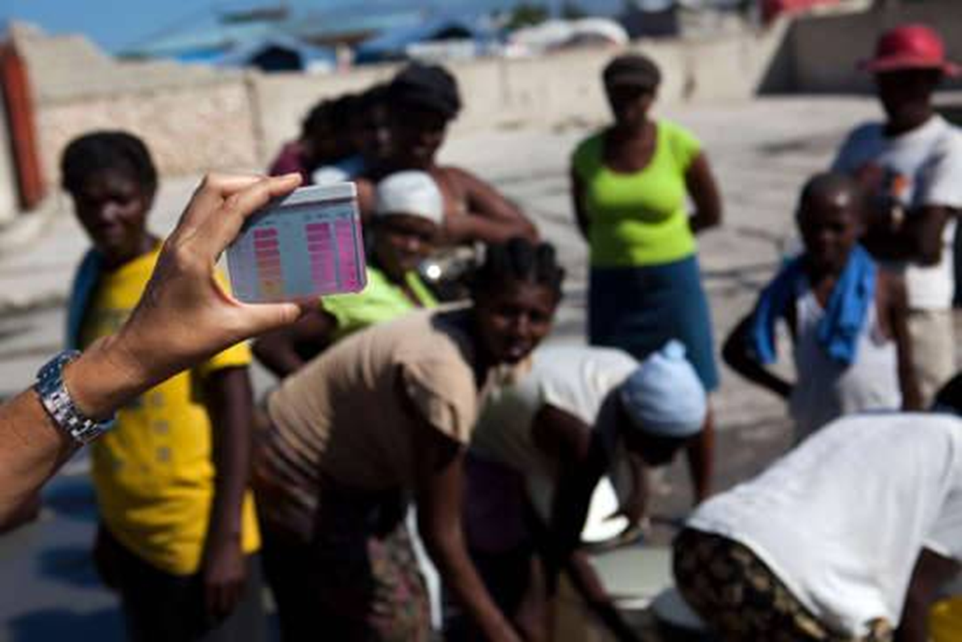Controlling Cholera via WASH?

Ron Haviv/VII. In the Cité Soleil area of Port-au-Prince, MSF Water and Sanitation coordinator Katelhine Van Eyck examines Haitian water at public and private points.
As a WASH engineer working in the Zimbabwe and Haiti cholera outbreaks, I often asked myself:
Are we doing enough to control these monstrous outbreaks? Are we tackling the right transmission route by chlorinating drinking water at the wells, or should we be shouting louder about handwashing?
So many unknowns. So, we keep on doing the same thing as we did last time. Outbreak after outbreak.
Evidence gap
So, as a part of my Masters in ‘Public Health in Developing Countries’ at LSHTM, I started exploring the body of published literature on this topic. I was surprised to find that review after review highlighted the severe lack of evidence on WASH interventions in emergencies, and expressed the need for further research to help guide interventions during outbreaks. Keen to ascertain why this might be, I spoke with my WASH colleagues and discovered that whilst different agencies have vast practical experience of outbreak response, each uses their own guidelines, and the lessons learned from past outbreaks and evidence for best practices remain unevaluated and unpublished.
Plugging the gap
In 2014, to address this gap, I, Sandy Cairncross, and the late Jeroen Ensink conducted a SHARE-funded systematic review of peer-reviewed evidence on the health impact of WASH interventions in cholera outbreak response. After several rewrites the review was finally published in PLoS One in August 2015.
Having reviewed the evidence, we next turned our attention to reviewing current practice. Through a systematic appraisal of published cholera guidelines and grey literature from international agencies, we sought to distil an evidence-based selection of best practice. Unsurprisingly, the main result was a long list of further research questions which need answering!
Sharing our findings
The outputs of the practice review were presented to the Global WASH Cluster in April 2014 and, since then, the report has been shared to help guide other researchers working in the cholera control field as well as with MSF, the Norwegian Refugee Council and WEDC. Hopefully new studies and evidence will start to trickle in as agencies continuously strive to be more effective.
My journey
Now I am back at MSF, I too am exploring opportunities for further operational research and am trying to develop protocols which will look more closely at the chlorination of water supplies and household disinfection practices to see if they really could reduce the transmission of cholera in families. The story of cholera control is TO BE CONTINUED…
The inspiration for this work is dedicated to the memory of Jeroen Ensink who encouraged me to persevere and who ensured that the results of our work were published and shared for others to use.
